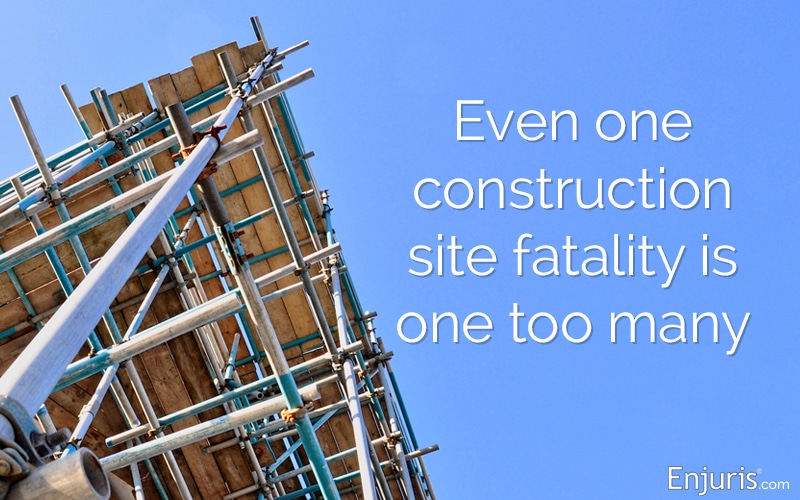
A few weeks ago, 56-year-old construction worker Luis Valasquez was on the jobsite at a developing apartment complex on Renaissance Place in Greenville County, South Carolina when he fell to his death 4 stories below.
The Centers for Disease Control and Prevention (CDC) says falls are the leading cause of construction worker fatalities. This type of accident accounts for ⅓ of all construction industry fatalities. Recent CDC statistics indicate that during the prior few years, about ⅔ of fatal falls were from roofs, scaffolds, and ladders.
If someone dies in a construction accident — or any work-related accident — most employers are required to provide workers’ compensation benefits to the surviving family members.
Eligibility for a North Carolina workers’ compensation claim
One of the advantages of workers’ compensation is that it’s no-fault insurance, meaning that you don’t have to prove liability in order to obtain benefits. In fact, even if you were partially responsible for your work-related injury, you should still be eligible for workers’ compensation benefits.
That’s one major reason why claims are handled much more quickly in the workers’ compensation system than in the courts.
In a workers’ compensation claim, you need to show 3 things:
- The worker was injured (or killed).
- The worker was injured/killed while at work or performing a work-related task.
- The worker’s injury cost money, either for medical treatment or lost wages. If the worker has died, their survivors are entitled to benefits.
If, however, you are injured outside of work and wanted to make a claim to cover the expenses associated with your injuries, you would need to file a personal injury lawsuit. A personal injury claim requires that the defendant negligently caused your injury, and the burden of proof is on the plaintiff to show exactly how.
Death benefits for a work-related fatality in North Carolina
A deceased person’s survivors may receive death benefits, along with funeral and burial compensation up to $10,000.
Survivor benefits are ⅔ of the worker’s average weekly wage for up to 500 weeks.
A spouse or minor child is automatically considered “wholly dependent.” Any other person must prove actual, total dependency at the time of the worker’s death in order to be eligible to receive death benefits.
What to do if you’ve lost a family member in a construction accident
First, you have my sincere condolences.
Any accident that results in a fatality is tragic. Everyone expects that when their loved ones go off to work each day, they will return at the end of their shift.
Second, in addition to experiencing grief and loss, you might also be worried about your family’s financial future. Whether the deceased person was the sole earner in the household or a contributor, it’s natural to be concerned about the family’s ability to manage without their income.
After a non-fatal injury, the employee is required to notify their employer immediately in order to accelerate the processing of their workers’ compensation claim.
The employer is probably immediately aware of a fatality, but don’t assume this — make sure that they’re informed in writing.
If you’ve lost a family member in a construction accident, call a workers’ compensation lawyer immediately.
Perhaps the most important aspect of your claim is gathering witness statements, photographs of the accident scene, and other evidence that could be important to determine exactly how the accident happened.
As previously mentioned, workers’ compensation is a no-fault system and doesn’t require a finding of negligence. But if someone was negligent — by not following OSHA or other industry-specific requirements, or in some other way — you might be able to file a wrongful death lawsuit.
Particularly if there was negligence that isn’t attributed to the employer (for instance, defective scaffolding or other equipment, a mistake made by a contractor or subcontractor, or a property hazard on a job site), you might be able to file a lawsuit against that party.
If that’s the situation, then evidence collected immediately after the accident could be essential to proving negligence and winning a wrongful death lawsuit.
When to consult a construction accident attorney near you
Catastrophic injuries — and fatalities — are often particularly complicated cases. It’s important you find an attorney who will handle your case with compassion, integrity, and fierce determination. The value of hiring a lawyer is to ensure that you are able to recover the funds you need to move forward.


